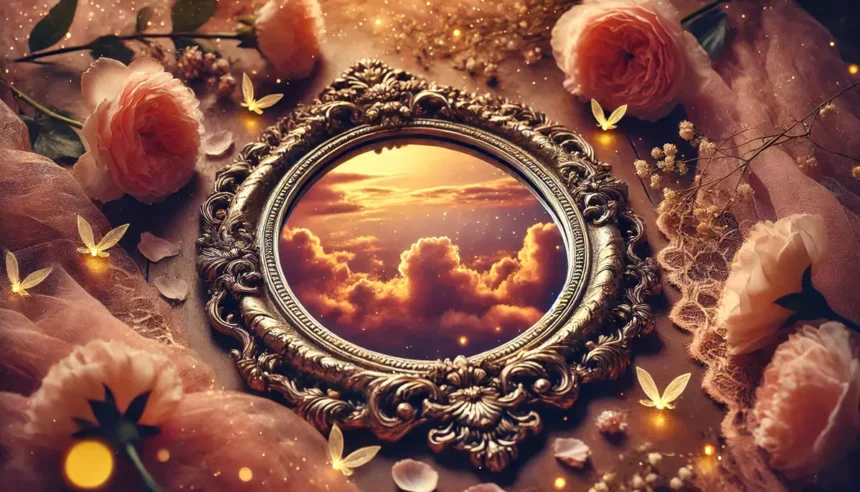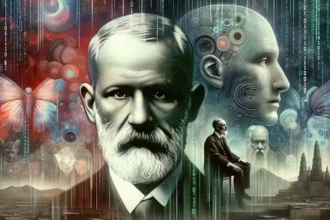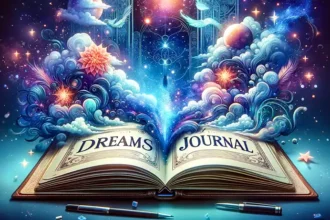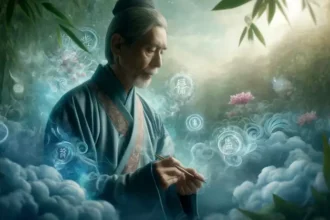Dreaming of a mirror carries profound symbolic meaning, often reflecting self-awareness, truth, and personal introspection. Mirrors serve as gateways to self-discovery, offering insights into how you perceive yourself and your surroundings. In dreams, they can reveal both hidden truths and illusions, making them a powerful tool for self-reflection.
The condition and context of the mirror in your dream play a significant role in its interpretation. A clear, pristine mirror suggests clarity of thought and self-confidence, while a foggy or broken mirror may point to confusion or fractured self-perception. Interactions with the mirror, such as gazing into it, shattering it, or avoiding your reflection, also provide clues about your current emotional state and inner struggles.
Emotionally, mirrors in dreams often provoke contemplation, encouraging you to evaluate your choices, relationships, and personal growth. Whether the dream leaves you feeling empowered or unsettled, it invites you to consider how you see yourself and how that perception influences your life.
Dreams Examples
- Looking into a clear mirror: You see a sharp reflection, symbolizing self-confidence and a clear sense of identity.
- A foggy or distorted mirror: Your reflection is unclear, suggesting confusion or uncertainty about yourself or a situation.
- Breaking a mirror: You accidentally or intentionally shatter a mirror, reflecting feelings of anger, regret, or significant life changes.
- Avoiding a mirror: You refuse to look at your reflection, indicating denial or fear of confronting your true self.
Dream Meaning: Good or Bad?
Dreams about mirrors can be both positive and negative, depending on the context and the emotions they evoke.
Positive Interpretation
A mirror dream can signify self-awareness and personal growth. Looking into a clear, unbroken mirror often suggests that you are comfortable with who you are and have a strong sense of self. This dream may reflect a period of self-discovery or acceptance, encouraging you to embrace your strengths and confront your weaknesses.
Mirrors can also symbolize truth and clarity. If the mirror provides a realistic or empowering reflection, it suggests that you are gaining insight into your life and making decisions with confidence. This dream encourages self-honesty and a deeper connection to your goals and values.
Negative Interpretation
On the other hand, a dream involving a distorted, broken, or foggy mirror may point to insecurity or self-doubt. These mirrors symbolize confusion about your identity or a situation in your waking life. They can reflect feelings of inadequacy, fear of judgment, or a struggle to see things as they truly are.
Breaking a mirror in a dream might represent fear of change or regret over past actions. It could also suggest a disrupted self-image or the need to break free from negative patterns. Avoiding your reflection entirely may indicate denial, suppressed emotions, or fear of facing uncomfortable truths.
Different Mirror Dream Scenarios
Looking into a mirror: Gazing into a mirror in your dream symbolizes introspection and self-evaluation. If your reflection is clear and realistic, it reflects a healthy self-image.
Breaking a mirror: Shattering a mirror may symbolize emotional upheaval or a fear of bad luck. This dream often signifies significant life changes or the need to confront challenging truths.
A distorted or foggy mirror: Seeing an unclear reflection points to confusion or a skewed perception of yourself or a situation. It suggests a need to find clarity in your thoughts or emotions.
Avoiding a mirror: Refusing to look at your reflection indicates fear or denial. This dream may suggest that you are avoiding certain truths about yourself or a situation in your life.
A mirror showing someone else: If the reflection in the mirror is not your own, it may symbolize a shift in perspective or the influence of another person in your life. This dream could also highlight feelings of comparison or envy.
A magical or enchanted mirror: Dreaming of a mystical mirror may symbolize hidden truths or future possibilities. This dream invites you to explore your subconscious and seek deeper insights.
Seeing no reflection: If you look into a mirror and see nothing, this could suggest a loss of identity or feeling disconnected from yourself. It may also represent a fear of being unseen or misunderstood.
Different Cultures, Different Meanings
In Christianity, mirrors are often associated with truth and self-examination. Dreaming of a clear mirror may suggest divine guidance or spiritual clarity, while a broken mirror might reflect sin or the need for repentance.
Ancient Greek mythology often linked mirrors to illusions and deception. Dreams of distorted mirrors could symbolize false perceptions or the dangers of vanity, as seen in the myth of Narcissus.
In Chinese culture, mirrors are believed to ward off evil spirits. Dreaming of a mirror could signify protection or the revelation of hidden dangers. A broken mirror in Chinese tradition may reflect a disruption of harmony or bad fortune.
Japanese folklore views mirrors as sacred objects that connect the physical and spiritual worlds. Dreaming of a mirror may suggest a desire for spiritual insight or balance.
In Native American beliefs, mirrors are seen as reflective tools for understanding the self. Dreaming of a mirror might encourage self-discovery and harmony with nature.
In Hinduism, mirrors are often symbolic of the soul. A dream of a clear mirror might suggest spiritual purity, while a tarnished or broken mirror could indicate inner conflict or karmic imbalance.
Victorian England associated mirrors with mystery and the supernatural. Dreaming of a mirror might reflect curiosity about the unknown or fear of hidden truths.
Psychological Perspectives
From a Freudian perspective, mirrors in dreams symbolize the self and its hidden desires or fears. Looking into a mirror may represent an attempt to reconcile unconscious thoughts with conscious identity. Freud might interpret a distorted or broken mirror as a sign of unresolved conflicts or repressed emotions.
Jungian psychology views mirrors as a reflection of the psyche, highlighting the dreamer’s journey toward self-awareness and individuation. A clear mirror suggests harmony between the conscious and subconscious mind, while a distorted mirror indicates a need to confront and integrate shadow aspects of the self. For Jung, the mirror serves as a bridge to understanding one’s true nature and potential.
What You Should Do
If your mirror dream leaves you feeling positive, use it as an opportunity to celebrate your self-awareness and confidence. Reflect on what you saw in the mirror and how it relates to your personal growth or life circumstances. Consider journaling or meditating to deepen your understanding of the dream’s message.
If the dream evokes discomfort or unease, take it as an invitation to explore your emotions more deeply. Identify areas of your life where you may feel uncertain or disconnected, and work toward gaining clarity and confidence. Consider talking to a trusted friend or counselor to process any feelings of insecurity or self-doubt.
Whether positive or negative, mirror dreams encourage introspection and honesty. By reflecting on the imagery and emotions in your dream, you can uncover valuable insights about yourself and your journey.
« Back to Dreams Dictionary






















